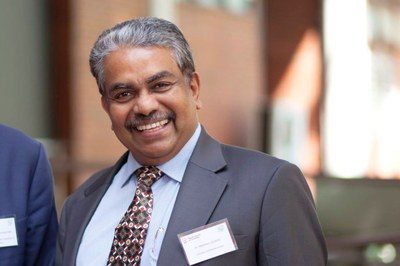An Asian outlook on today’s ecumenical challenges
26 July 2019
*By Claus Grue
 CCA General Secretary Dr Mathews George Chunakara.
CCA General Secretary Dr Mathews George Chunakara.
When leaders of eight regional ecumenical organisations gathered at the Ecumenical Institute in Bossey, Switzerland, earlier this month to further strengthen ecumenical cooperation, they took the opportunity to exchange views on global affairs and discuss how a well-coordinated ecumenical movement can contribute to a better world.
After the meeting, World Council of Churches (WCC) Communications caught one of the regional leaders, Dr Mathews George Chunakara, general secretary of Christian Conference of Asia, for a short conversation on today’s challenges.
While hopeful that the agreement, which emanated from the meeting, will pave the way for closer cooperation between the WCC and regional ecumenical organisations, and ensure better coordination of multi-regional activities, Chunakara expressed major concerns about a number of issues.
“In spite of dramatically improved standards of living in many Asian countries in recent years, we witness growing religious intolerance and animosity, extremism, violence, distrust in religious communities, lack of democratic governance, political instability, human rights violations and other threats to peace and security. These sad realities need our urgent attention”, says Chunakara.
In a church context
Chunakara underlines the importance of proper ecumenical perspectives and orientations, as well as professional local leadership, to effectively address these issues.
“We have a task to sensitize churches to accompany vulnerable people and communities, mainly through advocacy and capacity building. We must provide tools and a sense of commitment”, he points out.
He mentions the labour camp-conditions under which Asian migrants work in the Arabian Gulf as a concrete example of an urgent situation where local churches must be properly equipped to act decisively.
“This is a humanitarian and alien rights issue, where guest workers sometimes have had their passports and payments withheld by employers. Clearly, legal protection mechanisms are not always properly applied in the Gulf countries, and we have to advance advocacy for decent treatment of this category of strangers. There is a need for consistent accompaniments and expressions of solidarity from local churches, for which the ecumenical movement can play a major role.”, Chunakara says.
Another major concern is the rise of aggressive missionary evangelism, which in his view further increases the risks of conflicts and growing religious intolerance.
“The way they promote Christianity and preach the Gospel is exclusive and commercially driven. It has very little to do with being a Christian witness”, he explains.
Chunakara also touches upon the rise and impact of digitalization and artificial intelligence, which he fears will affect spirituality and alienate church members from an active church life.
“Digital technology is popular these days because it minimizes human involvement. It also makes possible for people to sit at home without attending the church services or without having their physical presence in churches with other worshipping community and follow a liturgical worship through web-based church services. This is helpful for diaspora members to follow liturgical services in their own languages. However, more and more people in Asian cities prefer to be part of web-based Sunday services telecasted by local churches. There are both advantages and risks involved in the long run, which we have to be aware of”, he concludes.
In Chunakara’s mind, the most effective measures to address both concerns and opportunities are local empowerment through ecumenical formation and leadership development training, accompanied by closer ecumenical collaboration across regions under the WCC and regional ecumenical organisations’ umbrella.
*Claus Grue is a communication consultant for the World Council of Churches.
"Regional ecumenical leaders pledge to stand strong together" - WCC news release 9 July 2019
"Regional ecumenical leaders convene at Bossey to share concerns, strengthen bonds" - WCC news release 2 July 2019










